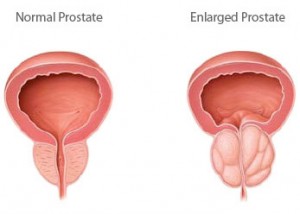
It affects over 50 per cent of men over the age of 60 - in fact all men will eventually have this condition if they live long enough!
This condition is benign prostatic hyperplasia (BPH), a non-cancerous enlargement or growth of the prostate gland.
The 10 things you must know about BPH
- BPH is so common it has been said that all men will have an enlarged prostate if they live long enough.
It is not understood what causes BPH, but experts agree that aging and testosterone are the primary influences on its development. Men who have had their testicles removed at a young age do not develop BPH. Similarly, if the testicles are removed after a man develops BPH, the
prostate will begin to shrink in size.
- BPH can have serious complications if left untreated.
Many men assume that urinary symptoms are part of the aging process and therefore accept the symptoms, accommodating their lifestyles accordingly. However, if left untreated, BPH can cause complications that are not just bothersome, but detrimental to one’s health.
- Long-term BPH can cause a thickened bladder wall with a reduced capacity to store urine.
As the prostate enlarges, it presses on the urethra - constricting it - which causes an obstruction to the natural urine voiding process. To compensate for the obstruction, the muscular wall of the bladder contracts more strongly to expel urine. These strong contractions cause the bladder wall to thicken, making the bladder cavity smaller, which decreases its capacity to store urine. Over time, the bladder holds smaller and smaller amounts of urine, which results in the need to urinate more frequently. As the urethral obstruction worsens, the contractions
can no longer empty the bladder completely, causing urinary retention.
- Residual urine in the bladder can become infected and/or lead to the formation of painful bladder stones.
Microorganisms are especially likely to multiply and cause infection in stagnant urine. Bladder stones may occur when urine in the bladder is concentrated and materials crystallize. Symptoms occur when the stone irritates the lining of the
bladder or obstructs the flow of urine from the bladder, and can include:
• Abdominal pain and pressure
• Abnormally colored or dark-colored urine
• Blood in the urine
• Difficulty urinating
• Frequent need to urinate
• Inability to urinate unless in certain positions
• Interruption of the urine stream
• Pain or discomfort in the penis
• Urinary tract infection
• Painful urination
• Fever
• Incontinence
- BPH is not cancer, and it does not raise your risk for prostate cancer.
While the two conditions are separate, they can occur together. Therefore, it is important for a physician to perform thorough tests to determine an exact diagnosis.
- Untreated BPH can lead to kidney damage.
Increased pressure on the kidneys from an overworked bladder can damage the kidneys, as can an infection that has spread from the bladder to the kidneys.
- Untreated BPH can lead to acute urinary retention.
With acute urinary retention, you can’t urinate at all, even if you have a full bladder. This is a medical emergency requiring prompt action.
- BPH can cause severe urinary tract infections (UTI).
A severe UTI is associated with fever and chills, and it requires medical attention.
- Untreated BPH can lead to visible blood in the urine, which requires urgent medical attention.
Called gross hematuria, blood in the urine is caused by the dilated veins on the surface of the prostate gland. You can see this blood with the
naked eye, and it should never be ignored.
- Untreated BPH can lead to chronic renal failure.
When urine cannot drain, it backs up into the kidney(s) and causes swelling. When the blockage causes urine to back up into both kidneys, high blood pressure and kidney failure can result.